
This show is a fantasy for all of us who belonged to the "nerds", the "weirdos", the "fat" people or whatever group we belonged to and thought we would never have a chance to get the popular guy -- to make our secret crush our one true love.
First of all:
1. Toh is a very special kind of guy. His brain works differently to "normal" people. (I think people nowadays call that neuro-divergent.) He's also a rather campy gay man, which marginalizes him further and colours his world view heavily. This makes his actions hard to watch, although for him, they all make perfect sense.
2. Toh's friend group is loud, queer, a bit weird -- the whole show is made of camp.
If you can accept that and roll with it, you will have a very good time with this show. If you can't, then you should probably watch something else. I get that these over-the-top kind of shows are not for everybody.
Second:
1. What I loved most is the friendship between Toh, Daisy, Som and KaoJao. They are all supportive when it counts, pushing the other when it's needed,and not above teasing each other. It was also great how easily the two gangs mixed, the weird one and the popular kids. Toward the end, they were still very much present, and that's not something you always have, that the couple(s) don't forget their friends.
2. The second main thing I loved was: Those characters who are different (nerdy, queer, chubby ... just "different") usually only get supporting roles, mostly no love interest, and are often there mainly for comic relief. In this series they are the main characters! And they all get a love interest! AND, and this is the thing that made me give ten stars, none of them is required to change for that to happen. How often have we seen that the "ugly duckling" turns into a beautiful swan in the end? Not here, Toh remains his usual self, glasses, bowl cut and short trousers included.
Third:
* Kudos to the director: There are so many ensemble scenes, and even if they are not in focus, I haven't seen one actor fall out of character. It's a joy to watch the reactions and interactions in the background.
* Colour, audio and overall cinematography was fine. The background music was always there, as if whoever was in charge of it had a "horror silentiae", and sometimes too loud. I do love "แอบหลงรัก ", §ดั่งดาว" and, yes, even "Ooh My Loove".
* One thing that threw me out of my enjoyment of the explicit scenes was that they opened the condom packets while still dressed -- where are you going to put it then? (Also, I'd really like some lube sometime...)
Fourth, and that's the last one:
And I have to talk about it because I like to rant about the prevalence of top/bottom-tropes in Thai BLs, this was actually toned down a lot here. It was still there, and I wish we could get away from the "pushy" top. (Even though Sky was quite sweet later on, I'm not too happy about how he pursued Jao in the beginning and the grabbing around the neck/chest thing.)
Still, there was no feminizing a partner who was not like that in the beginning, that's good. Also no infantilizing whatsoever. The use of "wife" was mainly used to describe the roles during sexual activities, not as a character trait. Partners in two couples offered to switch roles if the other wanted it.
"Tops" were also at times insecure, emotionally open and one of them not really adept at flirting.
I also firmly believe that the bandana in Nuea's right backpocket (in episode 7) was intentional, and you can pry this headcanon out of my cold, dead hands.
Overall, a firm recommendation from me, if just because of the great representation of characters who are otherwise never in the spotlight.
[This is a slightly edited version of the review I posted on Viki.]
Was this review helpful to you?

All in all, it did not wholly deliver on its promise.
The premise I liked, four young people who have to come to a decision and their own standing point regarding their position towards platonic and romantic relationships -- and issues of belonging to a group versus being who you are. Even the love triangle made sense within these topics.
The execution, though, is stilted and at times too slow.
These are definitely directing choices, not the problems of the actors -- as soon as they get to do something, they start to shine.
For example, I don't understand why the actors stand right in front of each other in most conversations, with their arms hanging down without movement (and the whole drama is conversation-heavy) -- alternatively, they talk while walking next to each other at a snail's pace. I suppose the director wanted to convey some kind of awkwardness -- which is a good idea, since the characters definitely don't feel comfortable for most of the time, but it just gets boring after a while.
Also, the characters (with the exception of Namgoong) all have similar mannerisms (or, if I want to be a bit mean, the same mannerisms) -- including the teacher, which I mistook for another student in several scenes.
There were also some minor issues:
* At times, the background music did not quite fit the mood -- I'm also not a fan of the "plink-plink"-kind of music.
* The scene with the adult toys in the beginning was never resolved, and did not fit in with the rest of the story.
* I could have done without the kiss at the end -- it feels as if the writers or the director said: Oh, the audience also wants a kiss, so lets add it somewhere. A hug or some light cuddling, or even sitting very close to each other would have fit the overall mood better.
* I'm also not too sure about the female character, but since she had her own story arc and character development, I'll let it slide.
The plot itself, with its theme of exploration and the awkwardness of navigating relationships in adolescenece, is fine, and surely of interest to many. It's just that the way the series is brought to the screen cannot convey all the depth and the emotion it wanted.
Maybe if the creators had been clearer of the intended audience and made some bolder choices for directing according to that, it would have been more on point.
Overall, I found it okay to watch, but not worth a second time.
Was this review helpful to you?

I also feared that this would be one of those films that romanticise country life to the point of making it almost unrecognisable. It's not the case -- yes, the hardships are mostly glossed over, but at least all of the locations and tools are real, and there are a few hints to how difficult it is for organic farming to be recognized by the old guard.
I would have liked to see the women shown as more than "kind and supporting their men", especially after that impressive first scene, where a woman dramatically arrives in a snowstorm at the milk farmer's home and is proposed to immediately. It's unfortunate that this has no impact on the story whatsoever (and I don't think we ever get to know why she came there at that time) -- and I wish the writer (who is also the director) had been more honest and either written out the female characters entirely or given them more to "do". It's especially jarring as each and every one of the five farmers get a unique character and an interesting backstory.
Overall, despite the shortcomings, it's not a boring film, which is mostly because of the the beautifully filmed landscape and the outstanding performances of the high-class actors.
Was it good?
It was a good representative for its genre, not too preachy and with beautiful landscapes and excellent acting.
Did I like it?
I'm not a fan of the genre, I admit, and if not for JFF Theater making this available, I wouldn't think to seek it out. That said, I enjoyed it for what it was.
Would I recommend it?
If you like films about community, good food and a beautifully filmed country side, then this is absolutely a film not to be missed.
Was this review helpful to you?
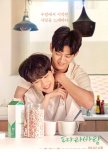
This review may contain spoilers
This series swings wildly between "meh", "heart-rendering" and "horrible", unfortunately. Overall, the actors were decent to excellent, the music was so-so (not that good for a series about a singer-songwriter), and the whole vibe felt distinctly Korean. The last point means that I feel already a basic disconnection to the story and its characters, so the not-so-good aspects weigh much heavier than they might in a Japanese or Thai production.The series can be divided into three parts, which all have their own level of quality.
It starts out slow and average, with a meet-ugly and a rejection, and then two young men who grow into a friendship with a one-sided crush. It's all terribly predictable, and really nothing to write home about, but done well. Only Baram's reaction to the rejection felt overdone -- which might be because we don't have a connection to the young boy yet. The worst point is when we get an undefined time skip from high school to -- when? The two other band members, a woman and a man, call our couple oppa/hyung, and the woman has her own bar. So, how old are they supposed to be, exactly? Somewhere in their mid to late twenties, I guess?
From episode 3 or so, the quality of the screenplay increases significantly, and the story gets more captivating: There's plagiarism, extortion, the fear of being outed, the heartbreak of being rejected: This is where both main actors shine; they show their feelings in subtle movements of hands, eyes, lips. Even if the reasons for the second heartbreak are a bit cliched, the execution tugged on my heartstrings and the resolution felt perfect.
Alas! The drama doesn't end here, and takes a deep dive. Our couple regresses into 12 year olds who can't even say the word "kiss" and ponder if they are "really" dating. For two men in their twenties, this is not believable at all; and whenever this happens in a (BL) romance, I am taken right out of the fantasy.
Luckily, it gets resolved relatively fast, but the quality never recovers from that in the last sugary episode.
Was it good?
It would have been okay to quite good if not for the last one-and-a-half episodes.
Did Iike it?
Hard to say, with the wild variation in writing quality.
Who would I recommend it to?
To those who generally get on with K-BLs, and who don't mind if their main characters occasionally behave like 12 year olds.
Was this review helpful to you?
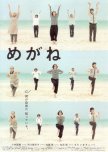
Nothing is ever explained -- why is is so cool to ride on the lady's tricycle that even the student who has just arrived knows about it? Does the school teacher ever teach? Why does the guest house owner not remove the wheel of the tricycle when he checks for punctures in the tire? (That last one hurt to watch.) And what about that other hotel? Nothing is connected, even though it seems to want to be until the last minute. This is not simplicity, this is faked depth.
It did have its surreal moments, with the hotel where guests worked on the vegetable fields or how the woman pulled her heavy suitcase along the sandy beach -- but these moments were far and inbetween.
I don't really have anything else to say, the film deeply annoyed me. *And* it bored me to tears.
If you want to see a cool film set on an Okinawan island, go watch "Nabbie's Love".
Edit to add: This film has won the Manfred Salzberger priye at the 2008 Berlinale and was a nominee for the "World Cinema - Dramatic" categegory of the Sundance festival, so there are certainly people who think the film is excellent. Please don't follow other opinions, make up your own.
Was this review helpful to you?
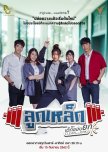
But first of all: I loved the actors' performances; the background music was slightly distracting at times, and the camera work was solid. The was never a boring moment, and there was much less sports than I thought.
Very obviously a lot of world/character building has gone into this drama; apart from two supporting characters (one of them unfortunately the love interest) they all had an interesting back story going on -- interesting enough that each one of them would have deserved their own drama.
Unfortunately, the writer didn't quite use these to their advantage. For most of the series, it felt like it could tip into melodrama any moment, with the one friend and the grandmother being archetypes of melodrama, the hinting at tragic backstories, and the search for the truth about Nun's mother. Really, it felt like being teased constantly. But then it went back to being a comedy slice-of-life, following Nun in her uni days doing homework, competing with friends, lifting weights in the uni club. I slowly got used to this rhythm, and even started to like it. And I thought, what an interesting concept that is, to have all these tropes but then to make the characters just accept that what happened, happened, and now is the time to look into the now and into the future.
But then, in the last two episodes, the mood changed jarringly. Only then did the screenplay tip into full melodrama: It finally revealed the tragic destiny of Nun's mother, finally the tension between Grace and her mother escalated into shouting and over-dramatic exits, finally the grandmother dramatically came to her senses within a near-death experience. Three other story-lines were also resolved in these last two hours, which gave everything too little time to feel properly rewarding.
Actually, I'd rather the writer had committed to their previous method to lightly conclude segments instead of writing melodrama. The two story lines that they *did* resolve in that understated way were the ones I felt were written the best. In my view, it also took time away from tying everything neatly together into a single theme or message. Till now, I have no idea what exactly the writer wanted to tell us: What exactly is it that Nun has learned now?
Something about truth, lies and forgiveness? Something about friendship? Something about letting go? Something about children having to love their elders?
Although the characters were nicely written, none of them got a proper character development, which I find a necessary element in youth dramas; or at least I can't see any?
And lastly, a note on the title:
"Clean and Jerk" is a weightlifting move -- and the one that Nun has the most trouble with.
Going from the design on the poster, the Thai title ลูกเหล็กเด็กชอบยก is to be read in two parts: ลูกเหล็ก /lûuk lèk/ "the child of iron" might be an allusion to her being the heir of a steel factory or to her iron will; เด็กชอบยก /dèk chôop yók/ "The child likes to lift/pick up" is the title of Nun's brother's favourite comic book but also might be an allusion to her bearing the weight of guilt for the car accident. From my observation, Thai titles often have more than one meaning, so all of these might be intentional.
Was it good?
It was engaging, never boring. But I felt that it didn't quite get to its point, and that the resolutions stayed superficial.
Did I like it?
I did. To be honest, I started it just because Pond Ponlawit has a main role and I wanted to see how he was when he started out in his career. But his character is a bit boring -- I genuinely grew to like Nun and her friends as well as Nun's father and wanted to see how it all would play out.
Who would I recommend it to?
I think those who generally get on with Thai PBS dramas and like watching youth dramas will like it.
Was this review helpful to you?

I found it to be a solid film, with a well-written script, fine acting and overall thoughtful design choices. It's "slice-of-life" in the sense that we only see the turning point in the protagonists' lives, with only hints of what happened before and an indication of what will happen after the ending credits.
The ending that doesn't tie everything up with a nice and neat bow is a suitable choice for the underlying universal themes of the film: the fragility of life, the struggle to find what you want and can do, the importance of listening and trying to understand.
And while it is a film that talks about themes that concern every human being in this earth, it also picks up topics specific to life as a gay man (some of them stereotypically so), and as such it is very much a gay film.
And even with all of these heavy themes, the characters are what bring the film to life and give it a wonderfully light optimism. Both Bongshik and Haneul are extremely likeable and realistically written characters, who get a decent bit of character growth in the one-and-a-half hour of the film's runtime.
Was it good?
I think so, I loved the actors' performance and the mix of lightness with heavier themes.
Did I like it?
It made me laugh and cry with the characters, which is always a good sign.
Would I recommend it?
Yes! It might not be the world's most groundbreaking film, but it's a solid production.
Was this review helpful to you?

It's hilarious, stupidly so, at least for those who can laugh at themselves. But I think if this had been much longer, it would have been too much very fast. As it is, it's just a glimpse into Hibiki's thoughts and his reactions to his own fantasies -- just a small collection of what he encounters daily, not a continuous story, and very much open ended.
I loved the juxtaposition between his outrageous fantasies and his earnest mixology skills -- and what is a Japanese production without some food/drink appreciation? -- a well as the bar's subdued atmosphere contrasted with Hibiki's antics. The short fantasy stories of Hibiki's were done with great care, so much so that I got invested in the ships myself -- only to be ripped out of the fantasy by Hibiki having a seizure / a nose-bleed / a fever and everyone around him being concerned. I was surprised to see so many Japanese actors with an arms-long list of previous acting roles; and that only contributed to the mix of contrasts.
One other thing I also liked is Hibiki's self-awareness. He knows very well that his fantasies are just that: Fantasies. He never expects any of them to become real -- he even has his own moral code of who is shippable (Married men are a big No-no!), and that is what makes him likeable, even with all of his antics.
Was it good?
It was a well-crafted parody, Japanese style; and a lot of care has obviously gone into the set, the costumes and the casting.
Did I like it?
I loved it! I found it hilarious.
Who would I recommend it to?
To fujoshis/fudanshis/slash-fans who are able to have a good laugh at themselves.
Was this review helpful to you?

Now, a few years later, I see that I was too hung-up about whether the publishing world was realistically depicted or not, when "Happy Ending Romance" is not about that.
No, it's a drama that tries to address several topics that revolve about one of the fundamental questions of life: What makes a life a good life?
It deals with issues around relationships between people (How will your choices affect the people around you?), around freedom of choice (Who gets to decide what is good for someone?), around honesty versus making a living (What does "success" mean?) and, ultimately, around he complexities that follow if you try to answer these questions.
This is where the story both has a strength, but also a weakness -- the characters' decisions in the past all have consequences, none of them were purely good or purely disastrous, but untangling them to see the right path forward is not easy, and requires that the characters be honest to themselves and to others. It's a strength because complex stories are usually more intriguing than straight-forward "red/green flag" romances. It's also a weakness because it requires great story-telling both in the screenplay itself and in the execution.
And this drama, unfortunately, does not reach the required quality and did not manage to evoke the right emotions for me. I think that the director did the story an injustice when they decided to start the drama with a strange, almost disjointed mix of present and flash-backs, showing the same scene repeatedly but giving us little new insight, and only tell the "big reveal" at the end of episode 7.
This way of telling the story and the backstory also put Kim Jungyhun in the "antagonist" category for most of the drama, when he should have been painted as a complex character with conflicting desires (actually, he could have been the most interesting of the three main characters).
I also feel that this should not have been a romance at all -- I did not feel a romantic attraction from Cha Jungwoo towards Taeyoung -- and in the other direction, it always felt more like a professional admiration. That the screenplay never made the exact relationship between Jungwoo and Jungyhun clear did not help. The romance was also irrelevant for the underlying topics, and everything would have worked as well, if not better, without it.
To evoke the right emotions in the audience, we should have seen and felt both writers' unhappiness in their situation. As it is, we got told, not shown and when we got told, it was too little, too late. This could have been a drama that starts with a stifling atmosphere, where everything is still, almost claustrophobic, living-but-not-alive to then finally end in freedom and light(ness).
Unfortunately, everything is bland and stays flat throughout. Neither the soundtrack (often too loud and misplaced in tone), nor the lighting, or anything except for the dialogue really changes between beginnning and ending. The sets showed that the designer tried but has no idea how a bibliophile lives -- why would you fill a perfectly fine shelf with knick-knacks and put your books on the floor? And why would you not put up another book shelf as long as you have the wall space? -- and they also missed an opportunity to make a greater distinction between Kim Junhyun's cold, still, and sterile house and Han Taeyoung's cozy and warm flat.
All in all, the drama failed to connect my emotions with those of the characters, and that might be why I didn't like it when I first watched it. I wonder if the director even had a clear vision of what story they wanted to tell?
Note that this is not the fault of the actors -- actually, they were the highlight of this drama. I loved Taeyoung's puppy energy, the long-suffering but loving friend Kang Woojoo, and the professor was appropriately disgusting. I would like to see more of all actors here in the future.
Was it good?
It's watchable but doesn't reach it's potential.
Did I like it?
Not really. I had to put in too much rational thought to understand what the drama's theme was, and it didn't make me feel with the characters.
Would I recommend it?
Not really.
Was this review helpful to you?
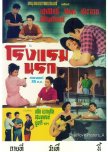
The last aspect is something the film doesn't do very elegantly, obviously to the confusion and disappointment of other viewers -- they feel that it's almost two different films, one a silly comedy, the other a serious crime thriller. I think it's certainly no "Le Salaire de la Peur" or even a "High Noon", but it does have its own charm and rhythm, if you're comfortable with the Thai way of switching moods within a story. Also, I felt that the comedy was still there, mainly carried by Noi, but also in some of the interactions between the bandits.
There is some romance, which I (and Noi!) felt came out of nowhere, but it seems that a romance is part and parcel if you have two main characters in the appropriate age range. (Also, it was kind of a long-term-setup for another joke at the end, so I don't mind too much.)
I grew to like the characters -- Noi, of course, who charmed me instantly, but also the prickly Chana and the wilful Riam. Even some of the villains were kind of sympathetic, although I agreed with Noi that "they [should] just kill each other".
When I looked up more information about the film, I learned that it's one of the first Thai films which were filmed on 35mmfilm, which means it has synchronized sound, i.e. that the actors' voices were recorded along with the image. Usually, Thai film makers usually used a cheaper sort of film, and the voices were either dubbed later or sometimes even dubbed by live voice actors in front of the audience. What a wild concept! I never knew that this was a thing.
I suspect that this was one of the reasons why there's so much singing and music in the first half -- Rattana Pestonji, who wrote, directed and produced this film, seems to have used the possibilities of the more expensive film stock to the fullest.
Rattana Pestonji is, according to Wikipedia, "the father of modern Thai film" -- which could explain why some aspects of "Country Hotel" feel very familiar. I will definitely check out his other works if I can find them, it should be worth it to understand where modern Thai films come from.
The copy that is available via the Film Archive Thailand on YouTube seems to not have been digitally restored, there are quite a few artefacts from degradation of the original film material. At times, the background score overwhelms the actors' voices, and there are strange cuts here and there. But to expect modern standards would only be an exercise in frustration.
Was it good?
It's not global top-tier in comparison to high-budget films from the same time. But I do think that it was made with love, and with all the expertise and abilities the crew and the actors had. The script and how the story is developed is very Thai, and that might not be to everybody's taste or feel unusual or surprising to Western viewers.
Did I like it?
Yes! I loved the comedy, I grew to like the characters, and I wanted to know how it would end. Afterwards, I felt fullfilled, and just wanted to sit a few minutes, not doing anything.
It was definitely entertaining and educational, and well worth my time.
Who would I recommend it to?
To anyone who is interested in Thai / SE Asian film history, or in Thai films in general.
Was this review helpful to you?

I assume Champ Weerachit (the director and screenwriter) did the same here as he would later do in "1000 Years Old", only there it was vampires, whose tropes and clichés I know well enough; namely that he played with the tropes, inverted/subverted them and combined them to build a new and surprising world. I suspect that I would have enjoyed it more if I knew the (pop) cultural tropes around the films referenced, Thai gangs, and เด็กวัด "temple kids". I am very sure that a lot of the scenes we saw were richer in meaning than I could possibly understand.
What both dramas have in common is a colourful design -- from the clothing and the accessories the characters wear to the sets, which are lovingly decorated. I like that "I Will Knock You" is set in a middle-to-lower-class area and both young men come from this background too -- it's unfortunately quite unusual till today in Thai BLs.
The bright colours and the way the script plays with tropes make this drama seem like it's set in a world that is a step to the side of ours, a world where fights don't really end in more than a few scrapes and temple kids and /or gangsters are not actually dangerous. Which is why the brief dip into the reality of classism and real-life consequences of knife violence felt like being doused in ice water. On the one hand, refreshing and finally something more than Thi's eternal waffling about, on the other a disruption in style. Whichever it was, the realism doesn't last too long, and in the end, we're back in Champ's fantasy world.
I do think if the script and the direction would have leaned even more into the absurd side of things, it would have made this world even more distinct and thus different from anything else in the BL industry.
I also loved the way music is used in the drama -- both as helpful characterization for Thi and Noey and as background music for setting the mood. I am a fan of Luk Krung anyway, and this was a delight.
Now, on to the two aspects that really should have been better.
One is the script, and Thi's character. He endlessly waffles about, and is never quite clear on his feelings for Noey. For the most part, it just seems as if he lets things happen around him, and never actually takes action or speaks out for himself. Even after he stopped being afraid, he never says outright "I don't like you like that, Noey" or "I like you, Noey". Not even in his own mind does he do that. And there are scenes where it seems like he has made up his mind by the way he acts -- and a few minutes later he goes "What is happening to me?" in his inner monologue. It's exhausting. It feels like Champ Weerachit didn't really want Ti to commit to being Noey's boyfriend.
The second thing, and this is even worse, is that there are quite a few scenes where Bom's ("Thi") and Tar's (Noey) acting is not good, but rather awkward. It's especially obvious in scenes where Thi is afraid, happy or feels any other intense emotion; I didn't feel his emotions at all. Maybe it was supposed to evoke second-hand embarrassment? But I didn't feel this one either. It was just ... awkward. Several of Tar's scenes felt similarly mis-acted. I wonder if this is due to the abilities of the actors or due to how they were directed by Champ?
Both of these aspects, especially the latter, are a problem throughout the series, and not even the fantasy world or the interesting premise could help. Overall, this feels like a beta version of an interesting drama (and "1000 Years Old" would be the release version 1.0) -- the main points are in place, but it doesn't quite get there.
Was it good?
I liked some aspectss of it, others were awkward and not quite polished enough to be good.
Did I like it?
I don't know. I want to like it more than I actually do, I think?
Who would I recommend it to?
Fans of fluff and plots that are different from the usual type of BL fare, who are able to tolerate rough acting.
Was this review helpful to you?

Shinmai Kisha Torokko: Watashi ga Yaraneba Dare ga Yaru!
1 people found this review helpful
I would have love it at thirteen
I didn't quite get on with this film, and I think the reason is that it might be aimed at young teenagers.Because the plot itself is nothing new -- group of underdogs discover corruption/a conspiracy, and must fight against the system/corrupt corporation/evil group to make it public. The only difference is that here, the setting is at an elite high school and the underdogs are a non-sanctioned newspaper club -- and it's all infused with messages about morals, truth and growing up. It also points out sexism, classism, adultism and how an imbalance of power easily leads to injustice. And the main protagonists and their idols are all girls and women, which I like a lot.
Viewed through this lens -- that the target audience are young -- some more things in this film make sense, for example that the evil CEO is a milk-drinking caricature of an antagonist, or that the young ones on the side of the good are Very Earnest and Very Brave.
The story starts out very slow, and builds up momentum along the script I mentioned above, with some but not many surprises who are already familiar with the tropes, and finishes in a finale that might be more emotionally satisfying for those unaccostumed with them.
Performances were appropriately earnest/comedic throughout; and there's nothing to complain about iregarding technical aspects -- I found the music slightly invasive at times, but I could blend that out quite quickly.
I wonder if this might be adapted from a manga. The actors spoke with the same speed and intonation as anime voice actors. The sets were strangely distinct, in an artificial way -- the small room for a tea ceremony in the school clashed with the modern school building, while the CEO's office would have fit in right into a business melodrama; and the way the actors stood and moved in the sets felt straight out of a manga panel.
Was it good?
It was done very well, and there was not much to complain about.
Did I like it?
I admit it, if this had been a series, I would probably not have finished it.
Who would i recommend it to?
Teenagers, aged 13 to 15. I think they might love it.
Was this review helpful to you?

All right, I thought, time travel, man out of time, comedy -- we all know how his one will go, right?
Wrong.
Well, at least I was wrong. The story continually surprised me with how it developed, to the point that I had no idea how it would end until the last five minutes or so.
If a film with a widely used trope like "time travel" can do that, then it is an automatic recommendation from me.
I don't want to spoil the actual plot for you either, but let me just say this: This might have been labelled as a comedy on JFF Theater, but it is not only that. I found more than a few thoughts about other, more profound themes in there, I was breathless during the "last scene", and I shed some tears in between.
This film is both a spoof of and a hommage to Samurai films and Jidaigeki TV shows (Samurai series). It both honors an image of the noble samurai and points out the horrors of killing and war. And, as a lot of Japanese productions do, it shows people's dedication to their craft, whichever it might be. (Also, food appreciation. Where Thai media has ghosts, Japanese media will always have people loving their food.)
The main character is so loveable, I wanted to give him a hug more than a few times -- and all of the other recurring characters are very likeable too. Watching them help and respect each other was a joy -- even the relationship between the main character and his (perceived) antagonist is full of respect.
There was some slight romance, but nothing explicit, and open-ended; it was one of many sub plots, and certainly one of the less important ones.
What makes the film even more outstanding is the performances. The fight scenes, "choreographed" and "not", look very good to my untrained eye, which is as it should be, given the two main topics here, and the actors balance comedy and darker emotions very well.
I am sure that aficionados of Samurai genre will see even more love in the film, but it was already brimming with love for filming, Samurai movies and history for me.
I don't even need to pose my three question here; it was excellent, I loved it, and everybody should give this film a try!
Was this review helpful to you?
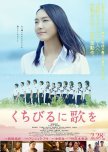
First the good things:
The teenagers' acting was overall good. I liked the background characters, and Nazuna was very well acted. Kuwahara was cute as a button -- but why did he constantly had the same tense posture, regardless of how he felt?
The script told the story in just the right pace and fit its elements together into a whole.
But that "whole" was unfortunately overly sentimental and contrived. The plot was predictable and characterizations superficial. Major events always were very obviously conveniently timed.
Several plotholes were left at the end:
Why is a professional pianist allowed to teach at a Middle School?
Why does nobody know that she is no longer active as a pianist, and not even a search turns up that she withdrew from engagements?
Why is the boy's father suddenly okay with him singing?
As far as I know, the song the choir sings in the contest was the insoiration for the novel this film is based on -- the song is about looking into the future, not giving up despite obstacles in life, etc etc. In my opinion, the problems in the protagonists life didn't fit the song and its intended audience of fifteen year olds. How many teenagers have a dead mother and an absent father? How many have to take care of their autistic older brother? Normal teenagers's problems are very different -- and for them often as insurmountable as those presented in the film.
So, slice-of-life problems would have fit this song better. And the moments when the children were children -- girls complaining about icky boys, boys peeking at girls and crushing on the new beautiful teacher, kids forming and maintaining friendships, a boy secretly being in love with a girl, those were the only moments when the film felt real. But there were precious few of them.
Another interesting avenue to explore would have been the boy and his questions about his own purpose. If you (think you) know why you are on this world, or rather, why your parents had you -- what does it mean for your own sense of self, for your dreams and feelings?
The worst thing is that in the end, it feels as if none of the children's problems are solved -- nor does it feel as if they took a significant step forward in their lives. Only the pianist can leave the island with a lighter heart and look into the future. Were the children's stories just a means to an end?
In some scenes, as well as the island setting, I wondered if maybe this was a callback to the seminal film "Twenty-Four Eyes" -- especially the scene on the grassy hill with the teacher and her students singing felt like it was. But where "Twenty-Four Eyes" made me feel deeply, this film left me mostly cold. Near the end, I even predicted what would happen constantly just a minute before things happened, and then rolled my eyes at it. Only the two minutes of conversation, the one flashback and the song after the competition was somewhat moving -- but then I am weak when people are being kind to each other.
Was it good?
For me, it wasn't. The obstacles were nothing new, and didn't fit the song.
Did I like it?
No. I found it superficial and overly sentimantal, when it didn't need to be. Other viewers loved it and called it "heart-warming".
Would I recommend it?
Not really.
Was this review helpful to you?

So much potential wasted -- again
What all of the four-and-a-half VBL productions I've watched so far have in common is that they take an intriguing premise with a lot of potential for interesting world building and plot with depth -- and then turn it into a piece of fluffy romance.So, when I saw that "Fight for You" was another VBL production, I knew what I was in for:
* attractive main and secondary characters,
* fluff, and maybe sexy romance,
* shallow plot that never explores the rich potential for story and characters,
* the main hurdle to overcome does not naturally follow from the premise but is derived from a romance cliché,
* mediocre to great acting,
* solid camera work.
And I got all of that.
In this case, the acting was good to great -- I loved Nelson Li's performance and hope to see him in something with more depth -- and the plot was thankfully not too full of holes (like it was in "Eternal Butler") or fell apart (like in "Stay by my Side"). The background music consisted mainly of pop songs that are fine on their own but not really working as background music (same as it was in "You are Mine"), often more distracting than enhancing the experience.
And the end was so cheesy that I could have hosted a fondue party for my extended family.
The secondary couple was superfluous here and they did them a disservice in tacking them on to this drama instead of giving them their own story. (Also, why the need for monogamy?)
So:
Was it good? -- For a VBL drama, it was alright. But I do wish VBL's writers would finally commit to their plot ideas instead of reducing themselves to the (perceived?) tastes of the masses. What's most disappointing with their dramas is that there's so much more potential for a great story, layered characters and, especially as their stories are all set in the same universe, intricate world-building.
Did I like it? -- I am maybe not the best judge here, because I knew what I would be getting into when I started.
Who would I recommend it to? -- To BL fans who really want a drama to help pass the time while ogling (mostly clothed, alas!) cute / attractive guys.
Was this review helpful to you?


 2
2 10
10 1
1 2
2 1
1





















